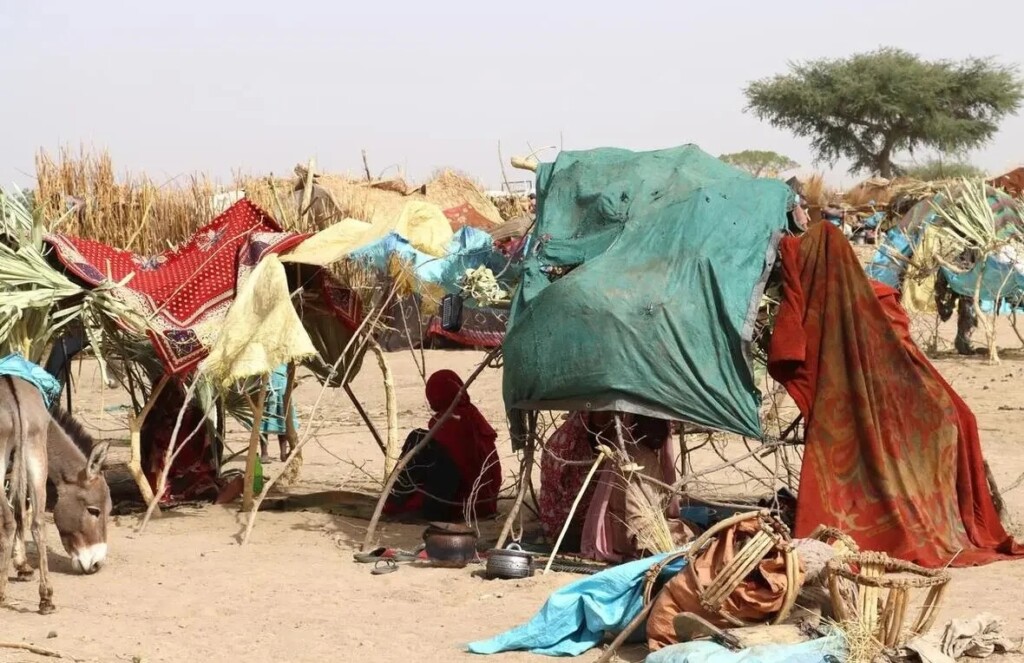UN humanitarian coordinator: ‘population of Sudan is balancing on a knife’s edge’

An estimated 10,000 to 20,000 Darfuri had fled to Chad by April 20 (Aristophane Ngargoune / UNHCR)
Deputy Special Representative of the United Nations Secretary-General and Resident and Humanitarian Coordinator in Sudan Clementine Nkweta-Salami yesterday said that Sudan has become the world’s fastest-growing displacement crisis. UN aid organisations have so far reached 3.6 million of the 18 million people in urgent need of assistance.
The war that erupted between the Sudanese army and its paramilitary counterpart the Rapid Support Forces on April 15, has caused 5,4 million people to flee their homes.
The International Organization for Migration (IOM) reported on September 26 that 4,295,092 people (856,578 households) have sought shelter in safer places within Sudan. An estimated 1,190,633 others fled to neighbouring countries.
“That is an average of more than 30,000 a day, many fleeing with nothing but the clothes on their backs,” Nkweta-Salami noted in a statement to the press in Geneva yesterday. “Sudan has become the world’s fastest-growing displacement crisis.”
She said that “she met displaced mothers in Sudan who do not know where to find the next meal for their children.
“I have met families sleeping in makeshift shelters, struggling to find food and water, unable to access health care, their children out of school and the family breadwinners out of work.”
As for the human rights situation, she referred to “reports of increasing cases of sexual and gender- based violence, enforced disappearance, arbitrary detention, and grave violations of human and children’s rights” and called, “once again, on the parties to the conflict to respect international humanitarian law and take immediate steps to safeguard civilians”.
‘We need the world to show much more solidarity – or we may witness Sudan falling off the cliff’
The UN humanitarian coordinator also warned of more outbreaks of water-borne diseases, after heavy rains and floods affected more than 70,000 people Northern State, River Nile state, North Darfur, North and South Kordofan, White Nile state, and El Gedaref.
“There is already a cholera outbreak declared in the eastern state of El Gedaref, and we are investigating if it has spread to Khartoum and South Kordofan,” she said. “Battling a cholera outbreak in a warzone is difficult at the best of times. With fighting escalating, it may be near-impossible to control.”
Radio Dabanga reported earlier this week that the Sharg El Nil (East Nile) Emergency Room in Khartoum North on Monday announced 40 new cases of cholera, including four deaths, within three days.
The emergency room said that the cases are increasing daily and are spreading to other neighbourhoods. End September, 14 confirmed cholera cases, including three deaths, were reported from the large Sharg El Nil locality.
Lifeline obstacles
Nkweta-Salami cited the IOM that already in early July reported that half of Sudan’s population –24.7 million people– “now require humanitarian aid and protection as the conflict, displacement, and disease outbreaks threaten to consume the entire country”.
The conflict could reach areas like El Gezira, “Sudan’s breadbasket,” she warned. This would have grave consequences for food security.
“The humanitarian response is a lifeline for millions of people,” she said. “The population of Sudan is balancing on a knife’s edge as their country is gradually consumed by this conflict.”
‘We also need to see an end to interference from the conflict parties, including forced checks of humanitarian trucks and mandatory military presence during loading in Port Sudan and El Gezira’
UN aid organisations “have reached at least 3.6 million people working with and through Sudanese humanitarian workers, civil society organizations, non-governmental organizations, including the Emergency Response Rooms. I applaud our Sudanese partners without whom little could have been achieved.
“We have been able to deliver assistance through a cross-border mechanism from Chad and into Darfur. In mid-September, nearly 3,000 metric tons of aid supplies were delivered by 66 trucks across six states. But we need to be able to deliver much more – safely, repeatedly, and fast,” she stated.
“We also need to see an end to interference from the conflict parties in our operations, including forced checks of humanitarian trucks and mandatory military presence during the loading process in Port Sudan and El Gezira.
“I hope that we will see swift action to reduce bureaucratic obstacles – including delays in visa approvals for staff – as promised by Sudanese authorities in a donor meeting yesterday.”
Funding
As for the funding of the aid, she called for more international support, as “the $2.6 billion humanitarian appeal is just one third funded.
“We need the parties to live up to their commitments and to live up to their obligations,” she concluded. “And we need the world to show much more solidarity – or we may witness Sudan falling off the cliff.”











 and then
and then